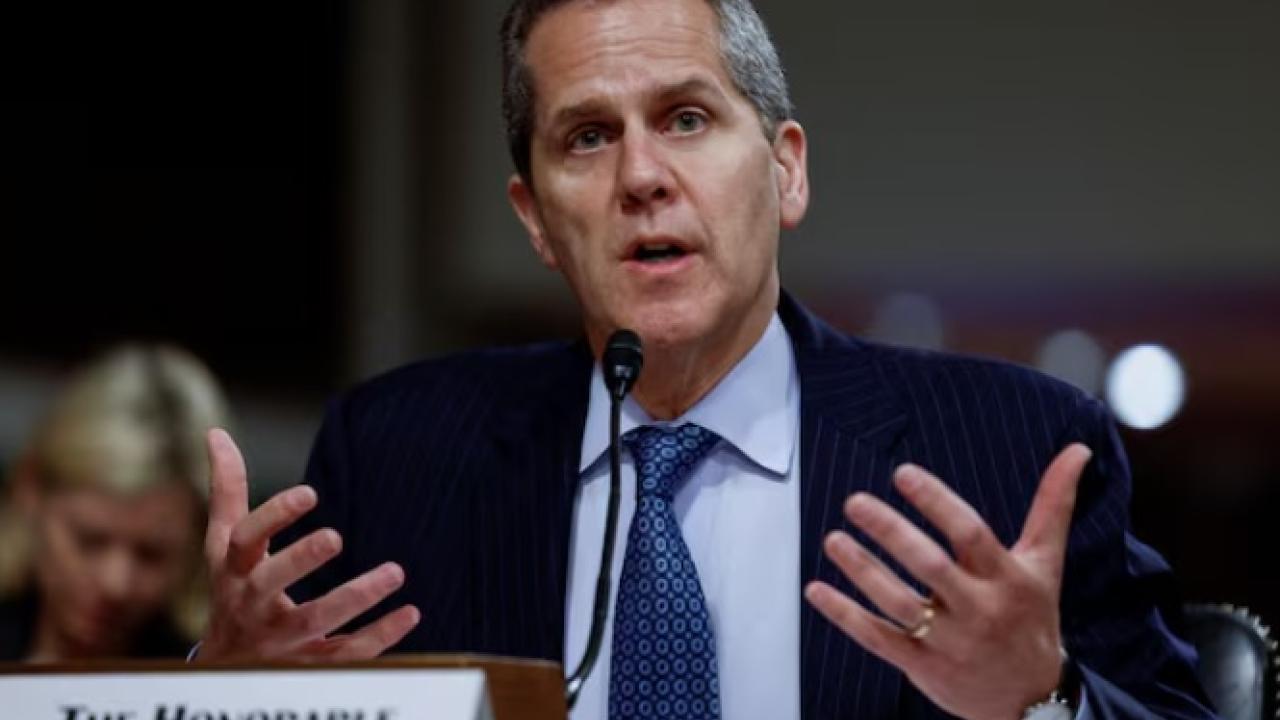
Although analysts say the Fed caved in to the Wall Street lobby, the 9% increase in capital still left critics of Michael Barr's announcement.
The vice president of the Federal Reserve's supervisory department, Michael Barr, has indicated this Tuesday that the increase in the capital requirements demanded of the main banks in the country will finally be reduced to approximately half of what was initially planned.
Barr has indicated that the CET1 capital reserves, i.e. the highest-quality assets, that eight US institutions will have to set aside as an "anti-crisis buffer" will be proposed to be increased by 9% compared to the previous 19%. The banks concerned would include JPMorgan Chase, Bank of America and Citigroup.
"Raising capital requirements has benefits and costs," Barr said at an event hosted by the Brookings Institution in Washington.
"The changes we intend to introduce will better balance these two important objectives, in light of the feedback we have received," he said.
In his remarks, Barr said regulators would reissue watered-down drafts of the "Final Basel" rule and a separate capital rule for global banks, bowing to Wall Street lenders who have aggressively lobbied to weaken them.
The draft Basel rule, first unveiled in July 2023, overhauls the way banks with more than $100 billion in assets calculate the capital they must set aside to absorb potential losses.
"It would increase capital for banks with less than $250 billion in assets, such as KeyBank, M&T and Fifth Third, by 3% to 4% after accounting for unrealized gains and losses on their securities portfolios, an issue that triggered last year's banking sector turmoil. Those smaller lenders would otherwise be mostly exempt from Basel," Barr said.
The decision did not go down well with major American banks.
"It's disappointing to see the negative reaction in bank share prices. Wall Street may have been expecting a bigger reduction than the original proposal," Stephen Biggar, a banking analyst at Argus Research, was quoted as saying by Reuters, as the S&P 500 banks index fell 3.5 percent to near a one-month low, with shares of JPMorgan, Morgan Stanley and Citigroup down between 2 and 6 percent.
Major US banks had been highly critical of the initial proposal from July 2023, considering that the proposed 19% would harm their international competitiveness and negatively affect the US economy by restricting the flow of credit.
In addition, other large entities that are not systemically important will see their requirements increased in the long term by between 3% and 4%, mainly due to the inclusion of unrealised gains and losses in regulatory capital.
The reformulation of the proposal would increase capital requirements for financial institutions that are not considered critically important by 0.5%.
However, the new measures do not represent a complete rewrite of the original draft.
Indeed, Barr has cautioned that the Fed, FDIC and Office of the Comptroller of the Currency have not yet made final decisions on the changes, including items "not explicitly addressed" in the current review.
But the plot thickens because, on the one hand, US Democratic Senator Elizabeth Warren said that "The revised bank capital standards are a gift from Wall Street... the Federal Reserve caved to the lobby of big bank executives," on the other hand, the Federal Deposit Insurance Corporation (FDIC) is expected to hold a board meeting later this month to consider the plan, as highlighted by the Reuters media.
Moreover, the protracted fight means this Basel phase will not be finalised before the US presidential election on 5 November and could be further weakened or even shelved if Republican candidate Donald Trump, who has promised to ease the burdensome rules, regains his seat in the White House.









